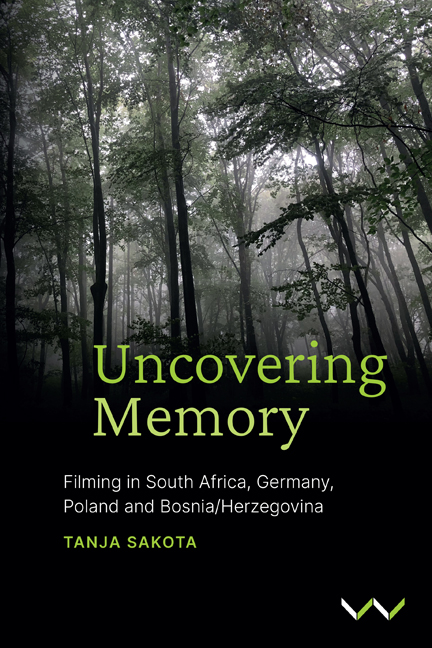Book contents
- Frontmatter
- Dedication
- Contents
- List of Images
- Foreword
- Acknowledgements
- Map of Africa and Europe
- Practice-Based Research, Teaching and Learning
- Part I Working With Students: Cape Town, Johannesburg, Berlin
- Part II Working With Peers: Constitution Hill, Johannesburg
- Part III Working With Myself: Poland, Germany, Bosnia/Herzegovina, South Africa
- Moving Forward
- Film Credits
- Glossary of Terms
- Notes
- Bibliography
- Index
Chapter 19 - My film Shattered Reflection
Published online by Cambridge University Press: 24 November 2023
- Frontmatter
- Dedication
- Contents
- List of Images
- Foreword
- Acknowledgements
- Map of Africa and Europe
- Practice-Based Research, Teaching and Learning
- Part I Working With Students: Cape Town, Johannesburg, Berlin
- Part II Working With Peers: Constitution Hill, Johannesburg
- Part III Working With Myself: Poland, Germany, Bosnia/Herzegovina, South Africa
- Moving Forward
- Film Credits
- Glossary of Terms
- Notes
- Bibliography
- Index
Summary
PROLOGUE
I started this journey with the aim to uncover memories that were embedded in space and place, so as to reactivate the past and to consider what it could mean in the present. My focus was to use memory and memorial sites as triggers to remember the events. What became so clear through the workshops was how the camera can access memories that we may or may not have experienced directly through public spaces. As I contemplate the various stages and challenges with my students and colleagues, it brings me to the point where I must consider myself and my own interaction with the past. The political decisions that were made by the three men in the red room resulted in the reimagining of borders and the mass movement of people. I am so removed from the three men but the effect of their decisions remains at the core of who I am and my own personal journey. Is it possible to find memory within sites that are not strictly commemorative? In other words, could I uncover invisible memories of events that are housed in ordinary spaces and places such as apartment blocks, parks and city streets? Could I find my own identity through places that I have not been able to access before, places that do not openly acknowledge that they house memories at all? It is something that I keep returning to, hence the repetition of the starting sequence at the beginning of the book with the introduction to Part III: Working with myself.
When working with myself, my aim is to extend the interaction to private spaces and consider how I can use the camera to access memories of events within the personal realm but still have significance to historical events. I also want to re-imagine particular experiences that I have not had but are somehow intrinsically embedded in my genetic code. I am now focusing on personal memories that remain within ordinary and individual domains. Here, the memory of events remain discrete and exclusive. My narrative emerges out of my own encounter with space and place of events that relate to history and decisions made by politicians like the three men in the red room that I refer to throughout this book.
- Type
- Chapter
- Information
- Uncovering MemoryFilming in South Africa, Germany, Poland and Bosnia/Herzegovina, pp. 261 - 272Publisher: Wits University PressPrint publication year: 2023



